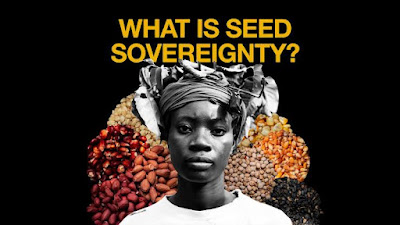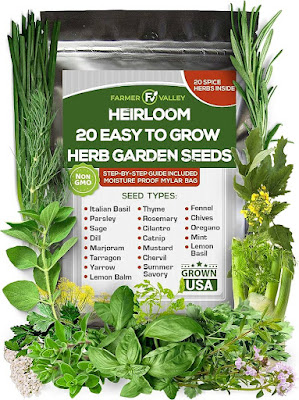The Seed War: Battling for Seed Sovereignty Against Corporate Patents
Seeds: The Living Heritage:
Seeds are more than just tiny entities that sprout into plants; they are the embodiment of centuries of cultural wisdom, adaptation, and biodiversity. For generations, farmers have saved, shared, and bred seeds to ensure food security and resilience. However, this fundamental practice is now under threat from corporate efforts to patent and control seeds.
The Corporate Agenda: Patents and Profits:
Multinational agrochemical and biotechnology companies like Syngenta and Monsanto have transformed seeds into commodities that can be patented and owned. Genetically modified organisms (GMOs) and genetically engineered seeds are created to withstand herbicides and pests, leading to chemical dependencies. These seeds are patented, allowing corporations to assert control over what should belong to humanity.
Criminalizing Nature's Gifts:
By patenting seeds, corporations are criminalizing the natural processes that have sustained farming for millennia. Seed saving, an age-old practice, becomes illegal as patented seeds cannot be replanted without paying royalties. This transforms farmers from stewards of their land into consumers bound by corporate rules.
The Struggle for Seed Sovereignty:
Amid the battle for corporate control, a global movement for seed sovereignty is emerging. Farmers, activists, and communities are reclaiming their right to control their seeds and cultivate biodiversity. They promote open-source seeds, preserve traditional varieties, and establish community seed banks to counter corporate dominance. You can also be part of this movement. Our white maize is fast going into extinction.
The Heirloom Solution:
Heirloom seeds are becoming a beacon of hope in the fight for seed sovereignty. These seeds, passed down through generations, are untouched by genetic engineering and corporate patents. They hold the promise of agricultural diversity, cultural heritage, and ecological resilience.
Benefits of Seed Sovereignty:
Biodiversity: Seed sovereignty fosters diverse crop varieties adapted to local conditions, enhancing resilience against pests, diseases, and climate change.
Food Security: Localized seed systems contribute to food security by reducing dependence on monocultures and corporate-controlled seeds.
Cultural Preservation: Seed sovereignty respects the cultural significance of seeds and maintains traditional farming practices.
Environmental Stewardship: By promoting agroecological practices, seed sovereignty encourages sustainable farming that benefits ecosystems.
A Call for Action:
As consumers and advocates, we hold the power to shape the future of our food system. Supporting seed sovereignty means choosing organic, heirloom, and open-source seeds. It means advocating for fair patent laws and agricultural policies that prioritize the rights of farmers over corporate interests.
In the ongoing seed war, the battle for seed sovereignty is a battle for the heart and soul of our food. Will we allow corporate profits to dictate the fate of our agricultural heritage, or will we stand united to reclaim our right to control the seeds that sustain us? The choice is ours, and it's a choice that will determine the legacy we leave for future generations.
The Impact of Modern Seed Development on Biodiversity and the Case for Heirloom SeedsIn today's world, agriculture has witnessed significant advancements in seed development. However, the pursuit of high yields often comes at the cost of environmental sustainability and biodiversity. This blog post delves into how modern seeds are designed to work with chemicals, herbicides, pesticides, and synthetic inputs, leading to the deterioration of biodiversity. We'll also explore the advantages of heirloom seeds for organic farming and their positive impact on biodiversity and sustainability.
Modern Seed Development and its Environmental Consequences
Modern agriculture heavily relies on seeds that are genetically engineered to thrive with the use of chemical inputs. These seeds are often engineered to withstand the application of herbicides and pesticides, which leads to a vicious cycle of chemical dependency. While this approach may boost yields initially, it wreaks havoc on biodiversity and the environment in the long run.
Examples of Modern Seed Practices:
GMO Crops: Genetically Modified Organisms (GMOs) are designed to tolerate or produce pesticides. For instance, Bt cotton produces its pesticide, impacting not just pests but also beneficial insects.
Herbicide-Resistant Crops: Crops engineered to withstand herbicides can lead to the overuse of these chemicals, resulting in the destruction of weeds that provide habitats for beneficial insects.
The Biodiversity Crisis and the Need for Change
The increased use of chemical inputs and the monoculture associated with modern seed practices have led to a decline in biodiversity. Pesticides harm pollinators like bees, and the loss of diverse crop varieties threatens food security. Moreover, the dependence on chemical inputs contributes to soil degradation and water pollution, exacerbating environmental challenges.
Heirloom Seeds: A Beacon of Sustainability
Heirloom seeds offer a promising alternative for farmers who prioritize sustainability and biodiversity. These seeds are open-pollinated varieties that have been handed down through generations. Unlike modern seeds, they haven't been genetically modified to withstand chemicals. Here's why heirloom seeds are a boon for organic farmers:
1. Genetic Diversity: Heirloom seeds come in a wide array of colors, shapes, and sizes, representing rich genetic diversity. This diversity makes crops more resilient to pests and diseases.
2. Environmental Sustainability: Heirloom seeds support sustainable agriculture practices by promoting natural pollination and reducing the need for chemical inputs.
3. Nourishing Flavor: Heirloom crops often boast superior taste and nutritional value compared to their modern counterparts, enhancing food quality.
4. Preservation of Culture: These seeds have cultural significance, reflecting the culinary traditions and history of various communities.
5. Economic Empowerment: Heirloom seeds empower farmers to save and share seeds, reducing dependency on seed corporations.
Seeds Sovereignty
Seed sovereignty refers to the right of farmers and communities to have control over their own seeds, including the ability to save, exchange, and develop seeds that are well-suited to their local ecosystems and cultural practices. It is a movement aimed at empowering farmers to be the stewards of their own agricultural biodiversity and to resist the corporate control and commodification of seeds. Here are some key aspects of seed sovereignty:
1. Preservation of Agricultural Biodiversity:
Seed sovereignty encourages the preservation of diverse and locally adapted seed varieties. Farmers have the right to choose and develop seeds that are best suited to their specific climatic, soil, and cultural conditions.
2. Cultural and Social Context:
Seeds are often deeply intertwined with the cultural and social fabric of communities. Seed sovereignty respects and values the traditional knowledge and practices related to seeds, as well as the rights of indigenous peoples.
3. Resisting Corporate Control:
The movement seeks to counter the dominance of multinational corporations in the seed industry. Seed sovereignty advocates for local control over seeds rather than dependence on commercial seed sources.
4. Open-Source Seeds:
Some seed sovereignty initiatives promote open-source seeds, where seeds are considered a shared resource that can be freely saved, exchanged, and adapted by farmers. This approach opposes the patenting and privatization of seeds.
5. Farmer Empowerment:
Seed sovereignty empowers farmers to be active participants in seed selection, breeding, and conservation. Farmers become creators rather than just consumers of seeds.
6. Food Security and Resilience:
By cultivating diverse seed varieties, farmers enhance their ability to adapt to changing environmental conditions, pests, and diseases. This contributes to food security and agricultural resilience.
7. Community Seed Banks:
Seed sovereignty often involves the establishment of community seed banks, where farmers collectively store and share local seed varieties. These seed banks serve as repositories of agricultural diversity.
8. Policy Advocacy:
Seed sovereignty advocates work to influence agricultural policies that support the rights of farmers to save and exchange seeds, promote agroecological practices, and resist the imposition of restrictive seed laws.
9. Education and Awareness:
Seed sovereignty initiatives educate farmers and consumers about the importance of preserving seed diversity, the dangers of monoculture, and the benefits of locally adapted seeds.
10. Global Solidarity:
Seed sovereignty movements often transcend national boundaries, fostering global networks of farmers, researchers, and activists who share knowledge, seeds, and strategies.Seeds sovereignty represents a holistic approach to agriculture that respects the cultural, ecological, and social dimensions of seeds. It emphasizes the importance of local autonomy, sustainable farming practices, and the democratic control of seeds to ensure a resilient and diverse food system for current and future generations
The modern approach to seed development has led to a decline in biodiversity, soil health, and ecosystem balance. Heirloom seeds offer a sustainable solution that supports organic farming and the preservation of our natural resources. By choosing heirloom seeds, farmers contribute to a more resilient and diverse agricultural system that respects nature's intricate web of life. It's time to embrace seeds that nurture our planet and its people.











Comments
Post a Comment